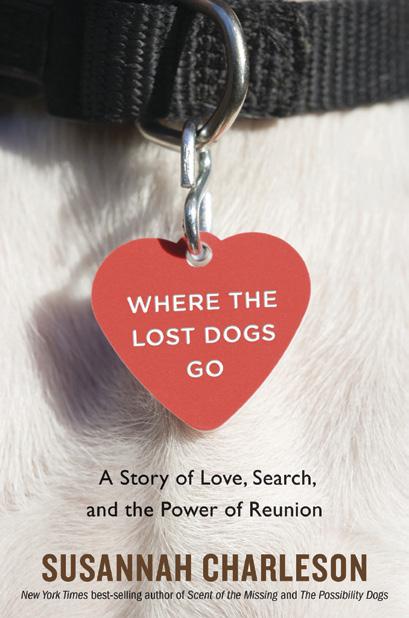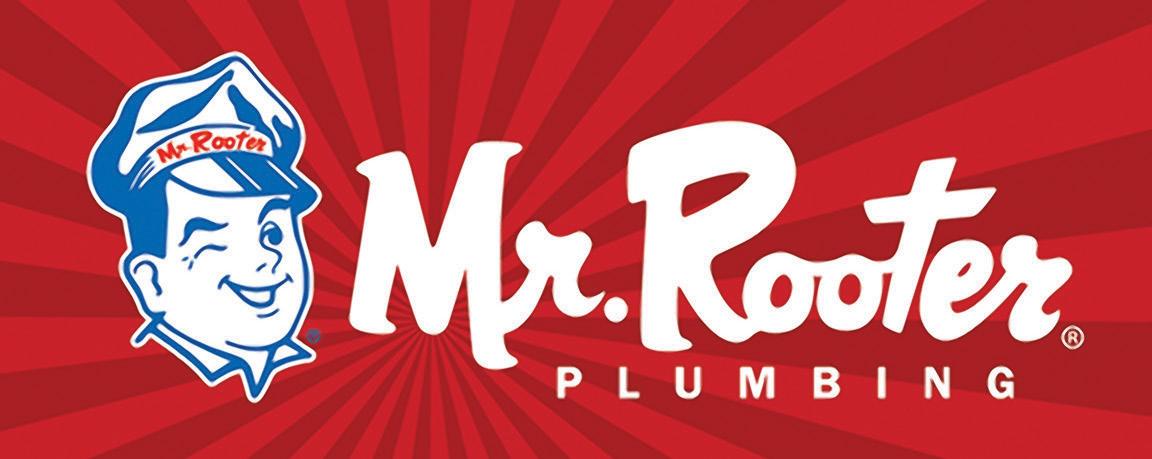
6 minute read
BOOK REVIEWS
Reviewed By Terri Schlichenmeyer, The Bookworm Sez
Lessons from Lucy: The Simple Joys of an Old, Happy Dog by Dave Barry
Advertisement

Sit. Among the things you taught your new puppy, that was one of the first. Plonk that little tail-end on the floor and “gooooooood boy!” After that, there was “down, stay” and, as in the new book Lessons from Lucy by Dave Barry, your dog taught you, too.
First, there were Earnest and Zippy, two dogs that weren’t the brightest pups; but Dave Barry, who’d had dogs almost all his life, loved them until he lost them due to a divorce.
When he remarried, Barry wanted to adopt another dog, but he and his new wife had Sophie instead—a child who was an animal magnet. When Sophie became old enough to join her father in begging for a dog, Lucy entered the family. At 11 years old, Lucy’s days are numbered. So, Barry says, are his. But as a 71-year-old human, his mortality bothers him more than Lucy’s does her. She, in fact, is pretty happy-go-lucky. Maybe there are lessons to be learned from that.
“Make New Friends” is the first lesson Barry shares, one that Lucy finds easy. Barry prefers the other half of that lesson—“And Keep the Ones You Have.”
The second lesson is good: “Don’t Stop Having Fun”— even when getting old “sucks.”
Dogs don’t have phones, so the third one’s simple: “Pay Attention to the People You Love. (Not later. Right now).
Barry tries hard to practice the fourth lesson, “Let Go of Your Anger, Unless It’s Something Really Important, Which It Almost Never Is.”
The fifth refers to beauty—yours and others’.


The sixth lesson is about things and the seventh lesson is a good reminder of what you learned from your parents, long ago.
And as for Barry, he offers an eighth lesson, but it doesn’t come from Lucy. That one comes from his heart.
Here’s fair warning: the introduction to Lessons from Lucy may be a disappointment. It feels like the start of yet another Let-Me-Tell-You-About-My-Dog story.
But then everything turns! Author Dave Barry shares a love letter for a dog, a frame for his hilarious thoughts, a missive that wonderfully cradles the delightful abundance of off-topic topics that make his books so fun to read. And yet there’s a difference here. One that’s really sweetly pronounced.
In Lessons from Lucy Barry seems more introspective than in his other books, letting readers in on his regrets, biggest peeves and missed opportunities. His humor pokes great fun, but it feels like it might be fragile, too, which gives it a sense of wistfulness.
Is that because of an old dog? Or is it because of the book’s final chapter? You won’t know until you go fetch Lessons from Lucy And then…sit.
Susannah Charleson
Your dog is missing. How did she get out? Where did she go? Most importantly, where is she now and how can you ever hope to find her? Do you run outside, call the neighbors, call her name? That panic is horrible, so be prepared by reading Where the Lost Dogs Go by Susannah Charleson.


Because of her work with dogs and rescue groups, Susannah Charleson gets constant pleas to save and foster dogs that are scheduled to die by euthanasia. She does what she can, but on one hot Texas day, after receiving multiple messages about a filthy, smelly little mixed-something-breed that was doomed, Charleson did a little more.
She already had several dogs, including some that were on hospice care. But this little waif seemed different. He wasn’t giving up, and neither was Charleson. She fetched the new “family member” and named him Ace. Her parents had both been fierce animal advocates and she grew up with pets they’d found and saved. Many of her best memories of childhood were wrapped in animal tales.
But Ace wasn’t like a lot of other strays.
“He was loved once,” says Charleson. He was well-mannered, happy, housebroken, and enjoyed car rides. After his health issues were addressed, he got along well with other dogs and with people.
What had happened to him that he’d ended up living in a culvert in a sketchy neighborhood?
While looking for Ace’s former owners, Charleson pondered that thought. Some dogs like to sneak out the door or under a fence for adventure. Others do it in fear. In any case, untold numbers of dogs go missing each year and, though there are ways to recover one that’s lost, some never return home again. It can happen to anyone.
Says Charleson, “Dogs don’t wander until they do.”
If you’re a pet lover, you know the panic you feel when your baby goes missing. It’s instant, helpless, urgent, and terrifying—all at once. Where the Lost Dogs Go can help make sure it doesn’t happen again. But lost-dog proofing advice isn’t all you’ll find here. Author Susannah Charleson writes about her parents who showed her compassion for animals and who couldn’t live with one another, but couldn’t live without one another, either. In her tales she includes her dog, Puzzle, which will please fans of her other works. It’s kind of like having a book wrapped in a book wrapped in explanations of how rescue groups work and how readers can ensure their pets make it home if they’re ever lost. That makes this story a valuable investment, one to read and save…just in case. If you don’t read Where the Lost Dogs Go, you’re missing out.
Activities
At the very least, a doggie daycare should offer indoor and outdoor playtime, but some have additional activities, including walks, one-on-one playtime with staff, training sessions and grooming. Usually, these come at an extra cost. Whether these additional activities and services are important depends on your dog. If you’re dog needs more activity or attention, take a close look at what the facility can offer.
Staff

The quality of the staff at a doggie daycare facility is just as important as its ratio to the dogs. Ask for a tour of the facility before you leave your dog and watch how the staff interacts with the animals. Are they engaged with the animals in the play yard or checking their Instagram feed? When you introduce your pet, are they genuinely interested in getting to know him?
The American Kennel Club (AKC) emphasizes it’s important to also ask how staff handles bad behavior (the facility should promote positive reinforcement versus punishment) and what kind of training staff has received.
“At bare minimum, the staff should be trained in basic care and safety procedures,” it states on the AKC’s website. “However, ideally, you’re looking for staff trained

WAG’S WORD SEARCH

in animal behavior, including canine body language and warning signs of danger, stress or illness.”


Communication
You’ll also want to consider how the facility will communicate with you on a daily basis and in emergencies. At a bare minimum, expect some kind of feedback at the end of the day. Bonus points if the facility offers live webcams or daily Facebook photo albums. Emergencies can range from illness, injury, change in behavior or escape to natural disasters and utility outages. Make sure all staff has canine first aid training as well as multiple ways to contact you (your cell number, work number, family member’s contact information) no matter what the emergency.
Admission Process
A reputable (and responsible) doggie daycare doesn’t allow every dog into its program. Before welcoming your dog, they’ll want to assess him to make sure he’s a good candidate for doggie daycare and their facility is a good fit for him. Consider it a red flag if the daycare doesn’t have an admission process or do an assessment. Just as with boarding, you’ll be asked for vaccination records. Your dog will likely also be required to have had a recent physical exam. Then, staff will usually do an assessment to screen for aggressive behavior as well as to make sure their facility and the dogs currently in their daycare system are a match for your dog’s needs. After all, doggie daycare is more than just a place to leave your dog while you’re at work. It should be a place that enriches his life.

Of Advertisers




The perfect place to share your business or services with THE WAG’s 44,000+ readers at an extremely low rate. Get six months of advertising in two consecutive issues for $150 or an entire year of advertising in four consecutive issues for only $250!
Humble & Kind, LLC
Be a Kind Human
Custom, handcrafted, natural pet treats and cakes

Pet Bakery with a Purpose –Giving Back to the Community
Auto Glass Specialists
Brian Lynch, Sales Manager/Insurance Liaison
• Free Mobile Service
• Full lifetime warranty
• No out-of-pocket cost
• Approved by ALL insurance companys
A healthy outside starts from the inside. It’s time to re-introduce plant medicine.
The CBD Source is Prescott’s convenient source for health-minded CBD products
The CBD Source is Prescott’s convenient source for health-minded CBD products for people and pets.
OUR MISSION IS TO HELP YOU FEEL BETTER!
We are a health-minded, family-owned business that provides a variety of safe, non-psychotropic (no THC) CBD products for all of your health needs—and your pet family members, too! CBD is a natural compound found within the flower of the hemp plant that has a strong therapeutic profile and is non-addictive.

• NO PRESCRIPTION NEEDED
• CERTIFICATE OF ANALYSIS

• FREE CONSULTATIONS
• TRU VERDE PRODUCTS

Free Consultation
Just call, text or visit our store to learn how CBD may work for you!
(928) 910-1116
Monday–Friday 10 a.m. – 5 p.m.
Healthy - Versatile - Clean - No “High” 347
FLAVORS: UNFLAVORED, MELON, COOL ICE, BLOOD ORANGE (1000MG CBD, 1 FL. OZ.)










